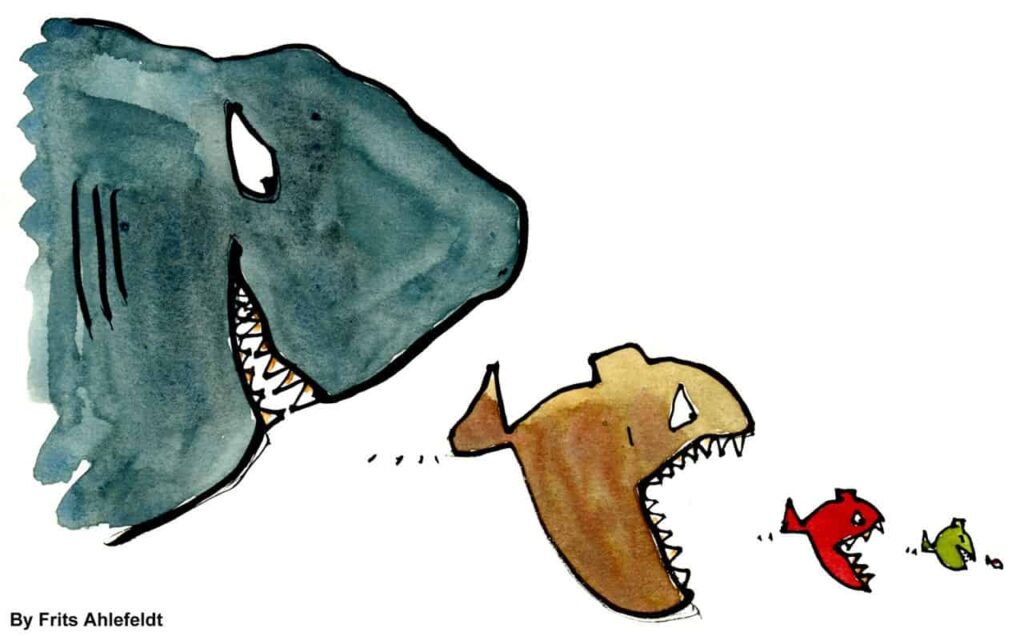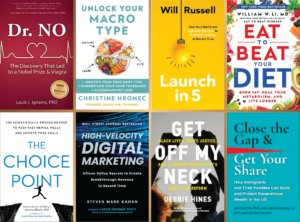Publishing House Acquisitions May Mean Fewer Options

Share
Many people fear that publishing house acquisitions like the one underway between Penguin Random House (PRH) and Simon & Schuster (S&S) may mean fewer options for authors and readers.
Since late 2020, one big question has been hanging over the publishing industry: what will happen if Big Five publisher Penguin Random House acquires the smallest of the remaining Big Five, Simon & Schuster?
The merger of two of the remaining “Big 5” publishing houses isn’t as simple as making the best offer. (For upwards of $2 billion, I might add). In November 2021, citing antitrust laws and concerns about PRH’s “unprecedented control” over the publishing industry, the U.S. Department of Justice (DOJ) stepped in to stop the acquisition.
More Mergers May Be Bad News for Authors and Readers
Publishing insiders worry that this acquisition will be bad news not just for authors, but for readers too. Fewer competitors in the market means it could be harder for agents to generate auctions for clients, resulting in lower advances for authors (especially mid-list ones). Consolidation also means fewer decision makers at the top, which could cause editors to seek fewer types of book, leading to less diversity of thought in the marketplace.
And there’s a good chance further consolidation will only reinforce trends already impacting the market. For instance, take the disappearance of the “middle class.” Major publishing houses are increasingly chasing celebrity and bestselling authors (the 1%, if you will), leaving less room for aspiring authors that seem like more of a risk. And the imprints that typically have had more leeway to take on those risky passion projects are also in jeopardy; it’s likely that after the merger, both houses will close smaller imprints that have a history of taking on riskier projects.
Publisher Mergers Have a Long History
But this isn’t the first time in history two major publishing houses have merged. In fact, publishing house acquisitions is a pattern that’s been going on for 50+ years.
In 1977, the New York Times lamented the “merger fever in publishing,” and even mentioned “antitrust considerations.” In 1988, major media company Bertelsmann AG stirred the pot by officially acquiring Bantam Books. Just ten years later, in 1998, Bertelsmann also acquired Random House and raised somewhat familiar concerns: authors and agents “…worried that the merger would reduce competition for books and the appetite for literary works lacking best-seller potential.”
Even recent history has shown the same patterns. In 2013, the publishing industry was rocked by the merger of Penguin and Random House, turning the Big Six into the Big Five. That same year HarperCollins acquired Harlequin, and just three years later, Hachette acquired Perseus. Last year, in 2021, HarperCollins also acquired Houghton Mifflin Harcourt (HMH). (And HMH used to be two separate publishing houses until 2007). All of these deals sent shockwaves through the industry and generated the same question: what will happen to the market?
This deal has the potential to impact every aspect of the book business, from how much writers get paid to how independent bookshops are run. PRH was already a huge player in the industry, publishing 15,000 print books annually and regularly contributing to the list of NYT bestsellers. That makes the acquisition of S&S (who publishes roughly 2,400 books annually) seem like a small drop in the ocean. But BookScan reports that over a third of all book sales last year came through these two powerhouses. So, the impact of a merger should be scrutinized.
Penguin Random House Promises Safeguards
PRH representatives promise to deploy safeguards so that the merger will not adversely impact the market. For one, they pledge to allow imprints to bid against each other (so long as at least one other publishing house is also in the running). They also claim that one major goal of the merger is to reach even more readers, while also maintaining editorial independence. This seems to be in response to Amazon’s dominance of the book selling market (which, ironically, was also the driver behind the Penguin and Random House merger in 2013). They claim that the merger will not reduce the overall number of books acquired nor the amounts paid to authors.
But that’s a lot of talk with no teeth. What does this merger really mean for the future of the industry? And what does it mean for aspiring authors?
Are We Near a Breaking Point?
With a long patten of acquisitions, this particular merger won’t necessarily limit opportunities in the book industry—yet. But we could be coming close to a breaking point. If we continue on this trend, we could face even more serious consequences.
If the DOJ lawsuit is any indication, President Joe Biden’s administration will be a fierce watchdog against corporate consolidation, with “the most aggressive antitrust team in decades.” Still, we must remain vigilant. History proves that the publishing industry naturally fluctuates and adapts, but we must remain wary.
Consolidation is also spreading in other information outlets and industries, such as tech, raising similar concerns. The fewer entities that curate information, the more vulnerable we are to losing our freedom of thought.
The Bottom Line is This:
The Penguin Random House-Simon & Schuster merger and other publishing house acquisitions won’t necessarily hinder the free exchange of ideas, or your chances of getting published, but we need to remain watchful, as these consolidation deals increase in frequency and size, or we risk losing a lot more.



